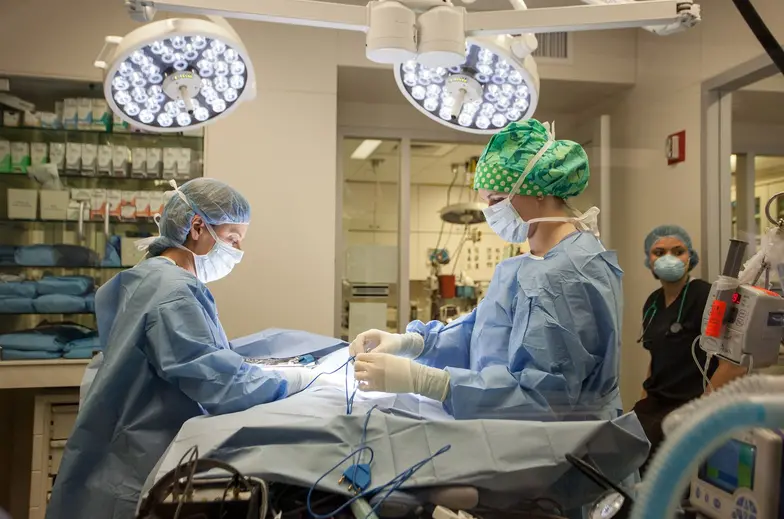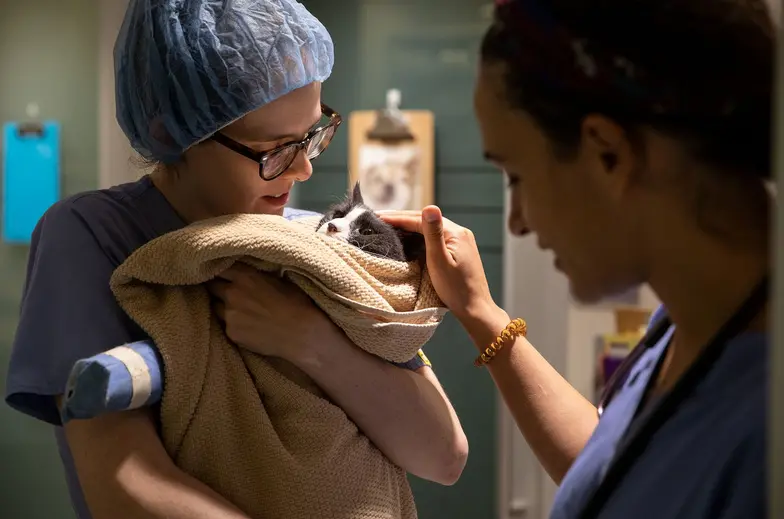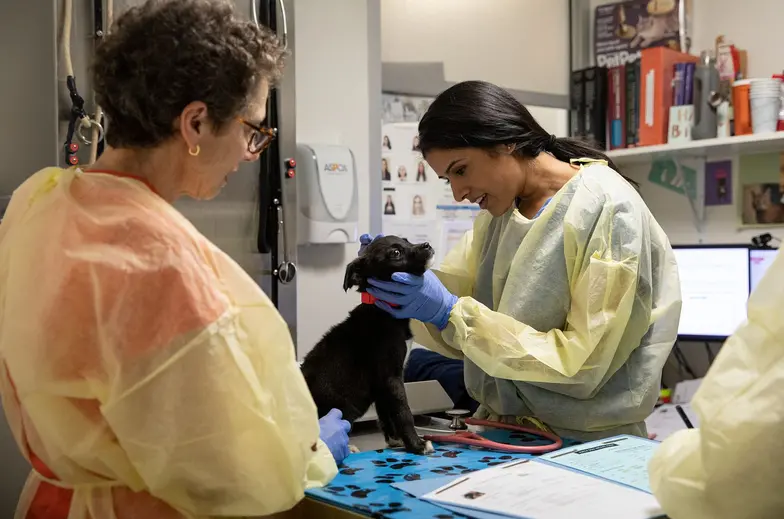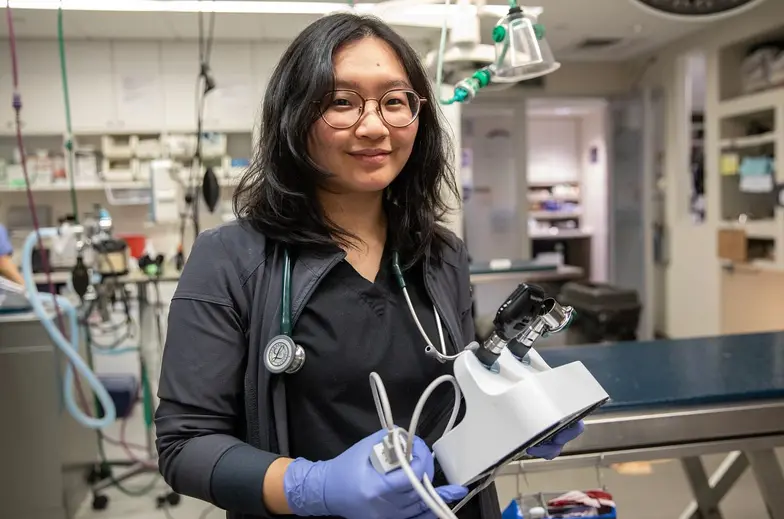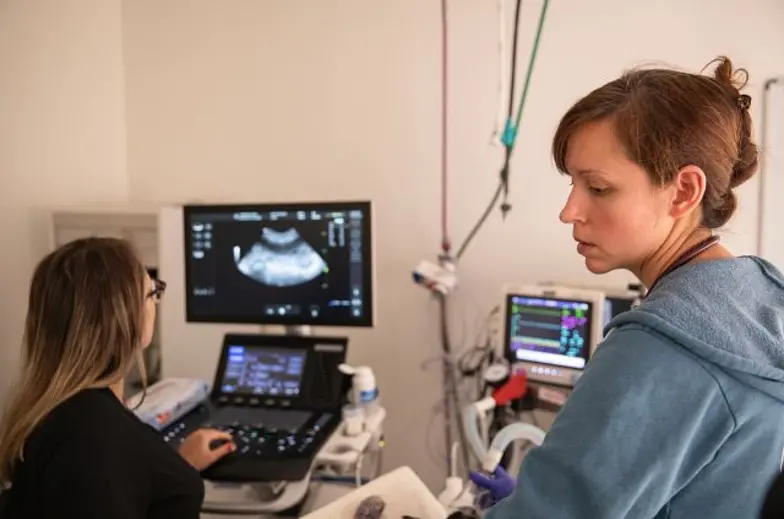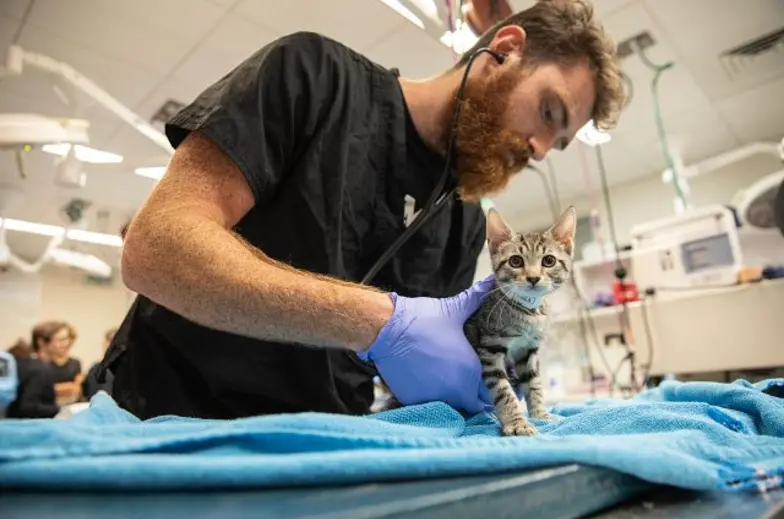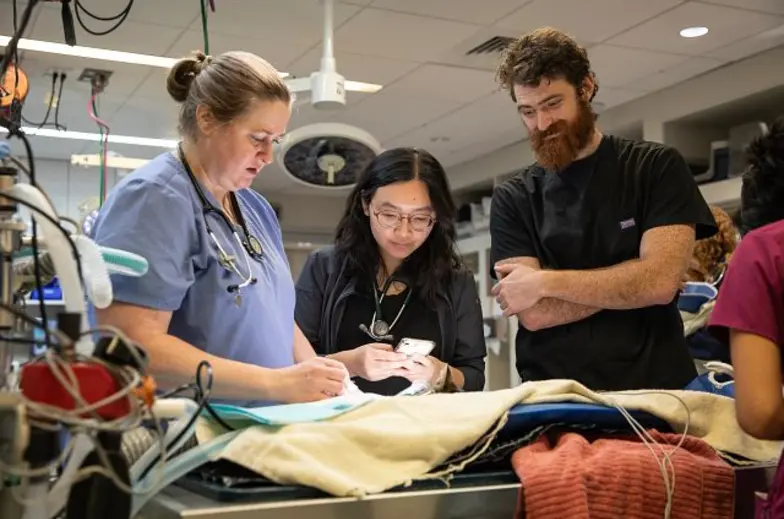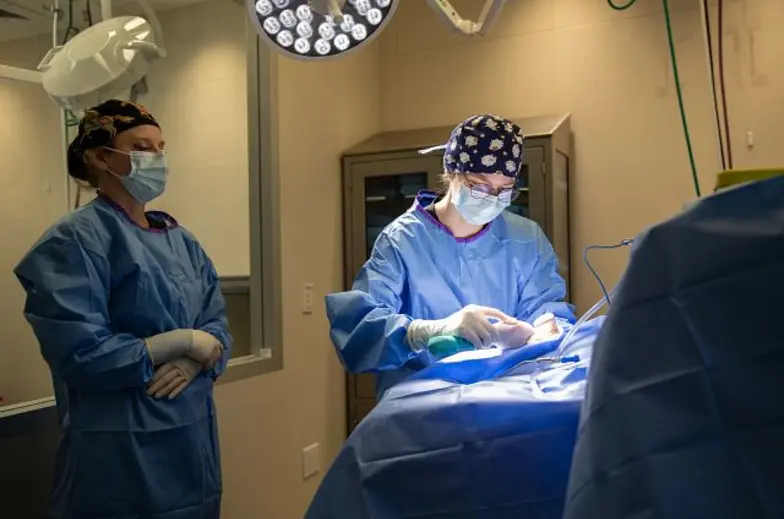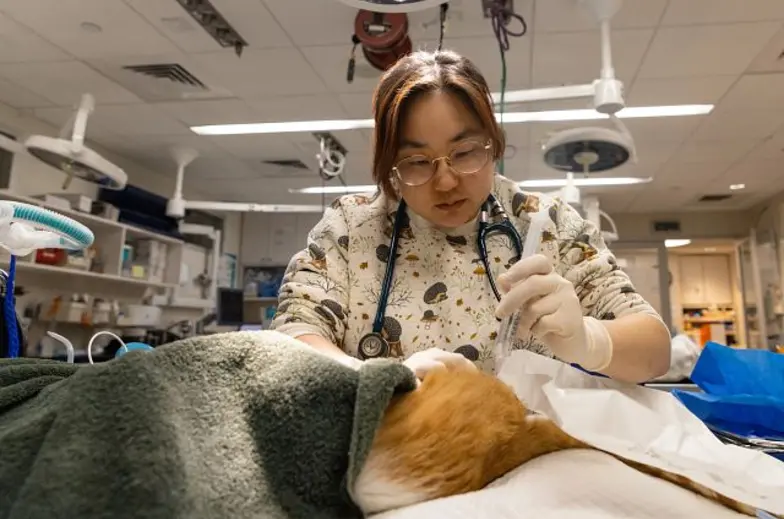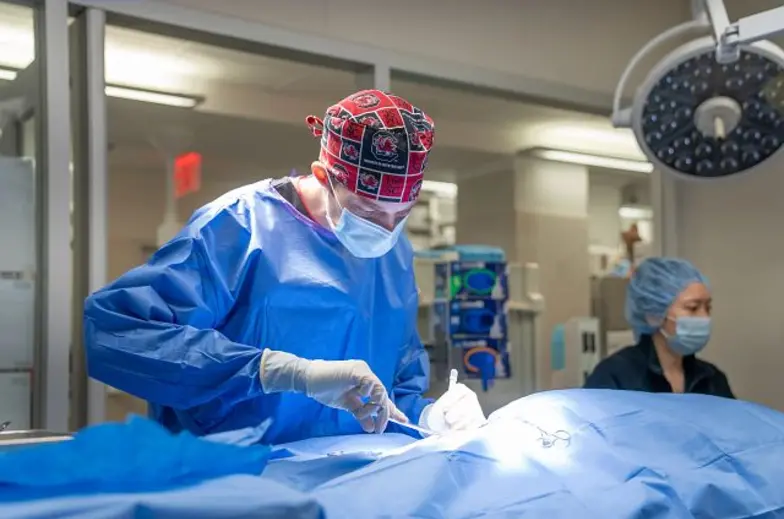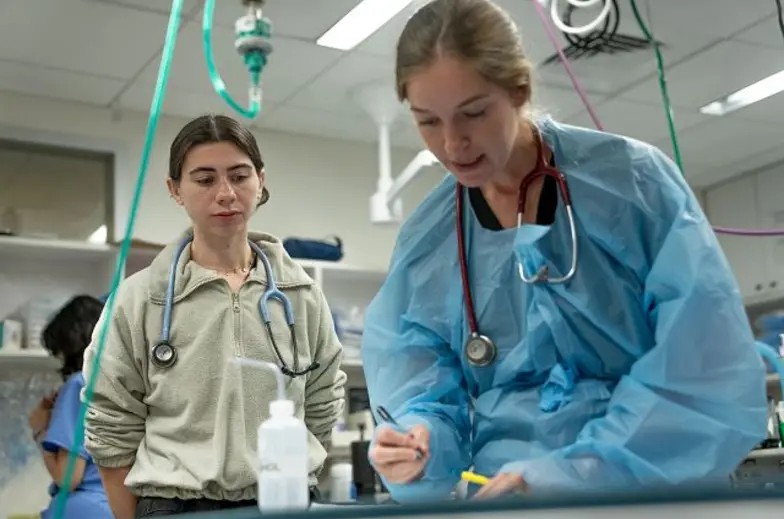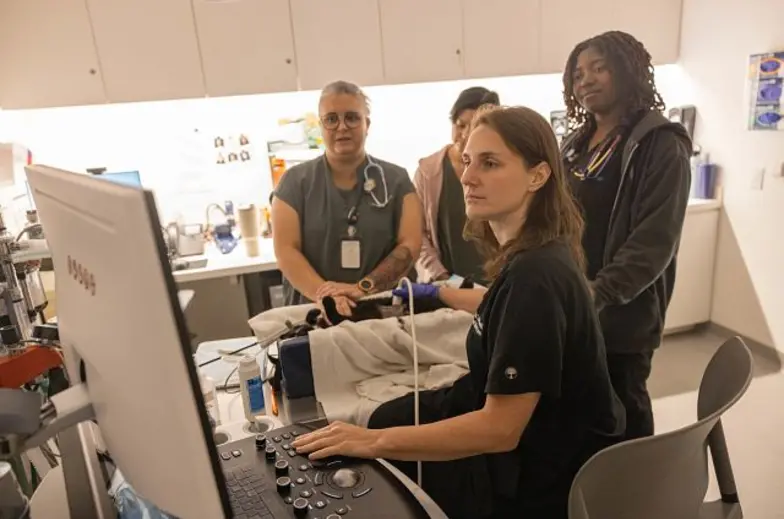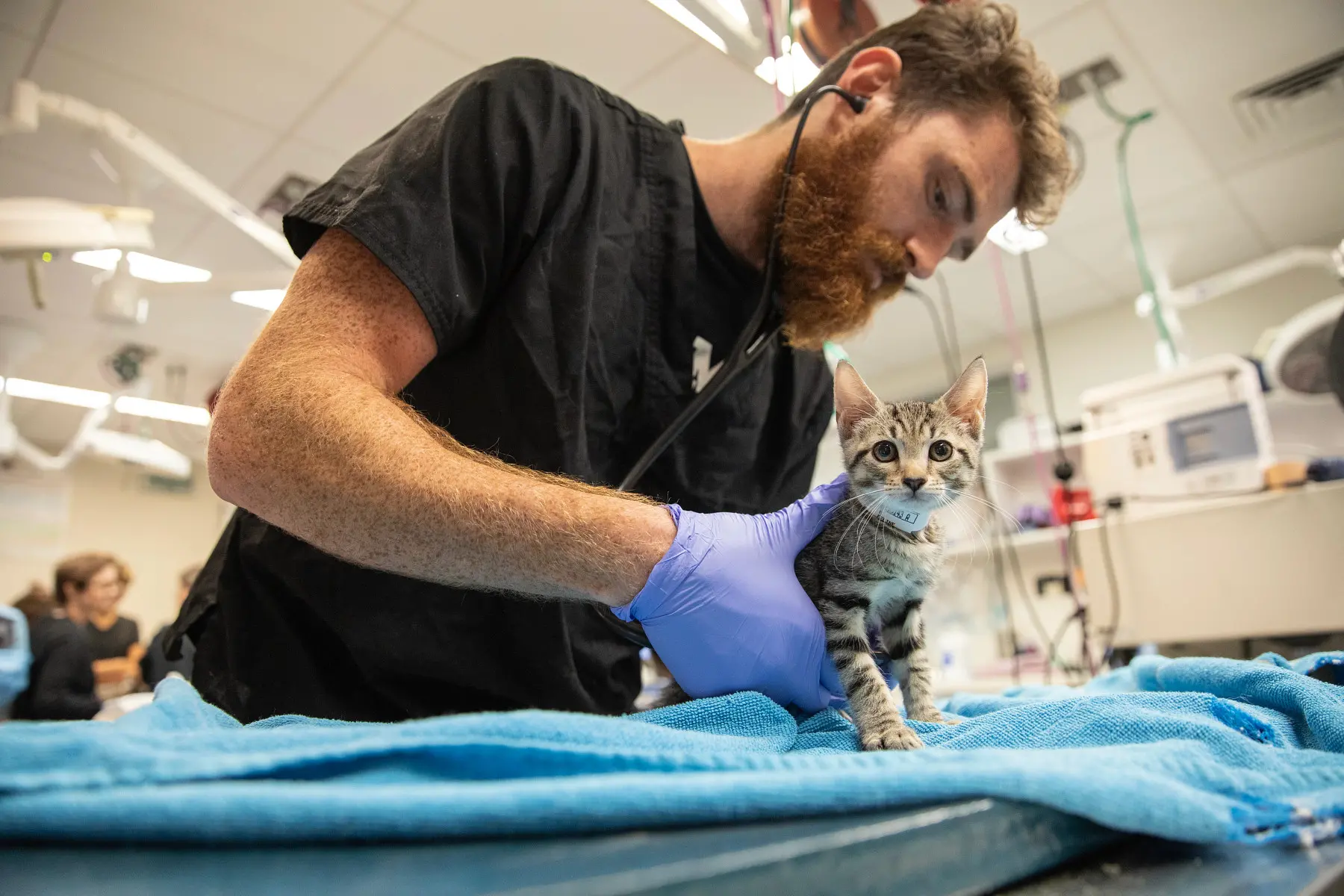
ASPCA Animal Hospital Small Animal Rotating Internship
Our veterinary internship offers extensive hands-on experience with a high caseload and strong mentorship. Interns rotate through core areas—internal medicine, orthopedic and soft tissue surgery, emergency medicine, and dentistry—and specialized rotations in recovery medicine for cruelty victims, veterinary forensics, and shelter medicine. Graduates leave with advanced clinical skills and the ability to apply them across diverse settings to improve animal and community welfare.
Join an Internship Info Session
Dates to be announced, and if interested, please email AAHInternship@aspca.org to be invited via Zoom.
“My internship at the ASPCA prepared me not only to be an excellent shelter veterinarian, but also a well rounded veterinarian. The high caseload and wide range of cases taught me efficiency, flexibility, and comfortability with any case that walks in the door. The opportunity to learn from so many veterinarians of diverse backgrounds was priceless.”
Program FAQs
- Applications are open at the VIRMP website. Please contact us for more information.
- VIRMP is the first program veterinarian students should apply to. VIRMP opens to applicants each November and closes in January. The students that match with the ASPCA are accepted into the program first. If we still have open spots available, that’s when candidates should apply on the ASPCA career website.
- 4th Year Veterinary Students
- VIRMP is the first program veterinarian students should apply to. VIRMP opens to applicants each November and closes in January. The students that match with the ASPCA are accepted into the program first. If we still have open spots available, that’s when candidates should apply on the ASPCA career website.
- Emergency (scheduled by appointment same day)
- Treatment (procedures and overflow emergency cases)
- Soft tissue surgery (elective and emergency cases with generalists)
- Internal Medicine (with specialist)
- Specialty surgery (with specialist)
- Anti-Cruelty and Recovery Center (medical care of survivors of cruelty and neglect)
- Forensic Veterinary Sciences
- Adoptions/Sheltering
- Community Medicine
- Dentistry
This depends on the rotation.
- Most primary case responsibility occurs on emergency, treatment, and soft tissue surgery
- This is your time to shine!
- During rotations such as IM and Surgery, interns have supervision by specialists.
- During ARC, the staff doctors directly supervise management of inpatients and intakes
Interns do have on-call responsibilities but do not have overnight shifts.
- Our internship has made mentorship a priority.
- We strive to find a balance between providing a supportive learning environment and ending with a confident independent clinician.
- In addition to regular quarterly check ins with the program director, you have a mentor assigned to you 90% of the time you are working.
- We have had interns go into specialty medicine including specialty internships (ECC, Surgery, Dermatology) and residencies (IM, Shelter, Dermatology, Behavior)
- In the last 5 classes, interns have been hired for open staff positions within the organization including in the ASPCA Animal Hospital, Adoption Center, Kitten Nursery, Community Medicine, and Anti-Cruelty Recovery Center.
- 2 of our previous interns have obtained graduate certificates in veterinary forensic sciences and now work in the Veterinary Forensic Department
- Additionally, the remaining intern graduates have gone into general practice, per diem, emergency, and animal welfare.
Yes! ASPCA is active in doing research. In 2025, Dr. Lesnikowski presented the our most recent abstract at ACVIM, GI23 - Serum Cobalamin and Methylmalonic Acid Concentrations in Emaciated Dogs with Long-term Inadequate Nutrition
Other current subjects of interest are additional long term inadequate nutritional studies, prognostic indicators of foreign body surgeries in a non-specialized setting, and infectious disease protocols in outpatient settings
Previously published papers:
- Findings and prognostic indicators of outcomes for bitches with pyometra treated surgically in a nonspecialized setting
- Findings and prognostic indicators of outcomes for queens with pyometra treated surgically in a nonspecialized hospital setting
- Welfare of cats 5–29 months after perineal urethrostomy: 74 cases (2015–2017)
Apply to our program!
Applications open at the VIRMP website on November 1, 2025. Please email AAHInternship@aspca.org for more information and to receive an invite to our intern candidate meet and greet.
